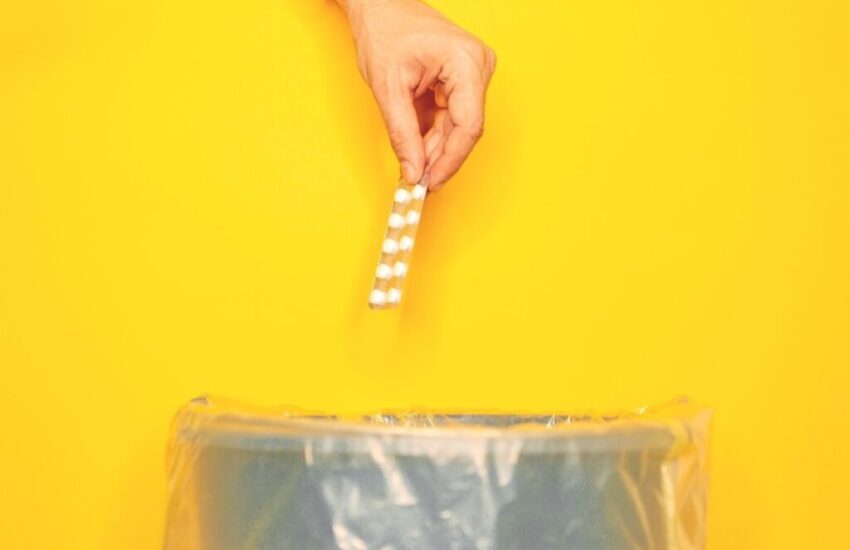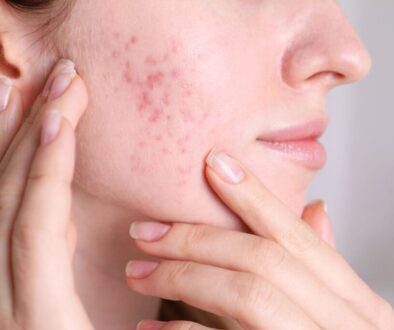What Happens When You Stop Taking Probiotics?

Published February 11, 2022
If you’re already taking probiotics, then you’ll probably agree that it’s not some pseudo-science that some people are claiming it to be. They do work and you’re probably already benefiting from their various health benefits.
But what happens when you stop taking probiotics?
Though probiotics are good for our health, their effects are not permanent. So if you stop taking probiotics, you will lose their health benefits. In short, your body will revert to its former state before you started taking probiotics and your symptoms may return. Though this won’t be instantaneous. Just like how it takes weeks or months to get our desired health benefits, it may also take that long to undo it.
To give you a better idea of what will happen to your body if you stop taking probiotics, you first need to understand how they work.
How Probiotics Work
Probiotics are living microorganisms that are naturally found within our bodies. They are dubbed as the “good bacteria” because they help keep their harmful counterparts in check.
If you didn’t know, your body is a host to trillions of both good and bad bacteria. This bacterial population is what we refer to as our microbiome.
Studies suggest that a healthy person has a healthy balance of bacteria in their microbiome. But certain factors like allergies or dietary change can cause an imbalance in your microbiome. This imbalance, referred to as dysbiosis, often leads to the bad bacteria prevailing over the good ones. When this happens, illnesses and diseases often ensue.
Probiotics help replenish your body’s good bacteria. With more of them, it’s easier to fight off the bad bacteria. This restores a healthy balance of microorganisms to your microbiome helping you avoid diseases.
If you stop taking probiotics, your body’s population of good bacteria will eventually diminish. This is especially true if you have an unhealthy lifestyle. When this happens, your microbiome will be again at risk of dysbiosis making it easier for the bad bacteria to proliferate. As a result, the health issues you had before your probiotic treatment may come back.
Health Benefits of Probiotics
As mentioned, probiotics offer a wide variety of health benefits. The major ones include:
Better Digestion
The majority of our microbiome is found in our guts. This is why probiotics are often associated with digestive health. With more good bacteria in the guts, our body can better digest food and absorb nutrients. This, in turn, helps us avoid digestive health issues like:
- irritable bowel syndrome (IBS)
- diarrhea
- constipation
- Chron’s disease
- colic
- ulcerative colitis
- inflammatory bowel disease (IBD)
- lactose intolerance
If you are taking probiotics to address health issues like the above, your digestive system can go haywire again once you stop taking them.
Increased Immunity
Better digestion and nutrient absorption also lead to better immunity. After all, most of the cells that produce antibodies can be found in the gut. When your body absorbs more nutrients, these cells receive more nourishment too. This helps them produce more antibodies which boost your immune response.
If you have allergy or immunity issues, discontinuing your probiotic treatment may put you at risk of illnesses and diseases once again.
Improved Mental Health
Unknown to many, our gut activity also affects our brain. That’s why probiotics are also used for improving mental health. Numerous studies likewise suggest that probiotics can help improve your mood. Scientific evidence also indicates that taking probiotics may help with depression, anxiety, and autism spectrum disorders.
Without a regular dose of probiotics, your gut’s activity will return to what it used to be. This will, in turn, affect your brain activity and you may find yourself dealing with mental health issues again.
Lower Cholesterol Levels
One of the most significant health benefits of probiotics is reduced cholesterol levels. Since they regulate our gut function and digestion, they also regulate how much nutrients we absorb from foods. As such, they affect how much cholesterol gets absorbed into our bloodstream.
Numerous clinical trials have also shown that certain probiotic strains can significantly reduce bad cholesterol thereby boosting heart health.
If you stop taking probiotics, your body may go back to absorbing more cholesterol than it should. Over time, this can cause heart and vascular problems.

How Long Should You Take Probiotics For?
First off, probiotics are not medicines. As such, there is no industry standard on how long you should take them. Besides, our bodies have different health needs and react differently to probiotic treatments. That’s why it’s hard to give an exact number of days or months on how long you should take probiotics.
Some people may feel a difference after 2 to 4 weeks. While others have to wait months before they can feel any effects. Once they get their desired benefits, however, most people stop taking probiotics thinking that it’s enough.
But as mentioned, the benefits of probiotics are temporary. We are continually exposed to harmful bacteria, whether from the environment or the foods we eat. Thus, we also need a continuous supply of good bacteria for our microbiome to maintain its delicate balance.
So if you’re wondering whether you should stop taking probiotics, it’s best to ask your doctor first. They know your condition better and can thus give you better advice on how long you should take probiotics.
Are There Any Risks to Taking Probiotics?
While probiotics have plenty of health benefits, they can have unpleasant side effects too. They are rarely fatal, however, and usually goes away after a few days. Some of the most commonly reported side effects are:
- bloating
- gas
- constipation
- increased thirst
- headaches
- increased histamine levels
- skin rashes
Some probiotic supplements, however, may contain traces of common allergen like soy or dairy. So if you have allergies, make sure to read the label of your supplement first.
In rare instances, probiotics may also pose serious health risks for pregnant women and people with compromised immune systems.
Is Taking a Break From Probiotics a Good Idea?
As mentioned, our bodies react differently to probiotics. As such, it can be hard to predict what will happen if you take a break from probiotics. The most likely outcome would be that your symptoms may get worse. But there’s also a possibility that nothing will happen.
A good rule of thumb would be to assess how your condition has improved since you started taking probiotics. If your probiotic supplement has done dramatic changes to your body, then there’s a good chance that stopping it will also create a dramatic reversal. But if the supplement hasn’t done much, you probably wouldn’t feel anything after you stop taking it.
As with everything involving your health, it’s always wise to consult your doctor first before taking any drastic step.
Benefit From The Latest Advancements In Probiotic Science With Bionaze
Bionaze is a proprietary blend of probiotics proven to promote ear, nose, and throat health, improve digestion, and support your immune system. The active ingredients BLIS K12, and BL-04 are considered among the best probiotics according to science.
Get 25% Off Your First Order when you use BIO25 at checkout!

This Content Has Been Reviewed For Factual Accuracy
This content has undergone thorough fact-checking by our team of internal experts. Learn more about the meticulous editorial standard for our website here.
ADVERTISEMENT

About The Author
Judy Ponio is a professional writer based in the Philippines. Her commitment to communicating factual content in when writing is unmatched. She works hard to cross check reputable sources to ensure her work uses accurate facts.




